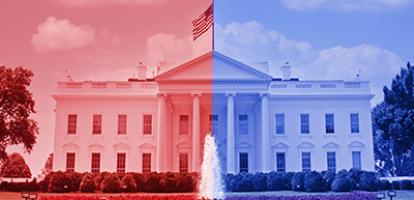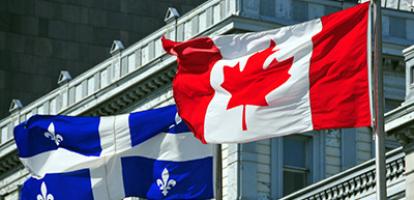From: Lawrence Herman
To: Canadians concerned about trade
Date: February 12, 2020
Re: The Unsettling US-China Trade Armistice
International business breathed a sigh of relief last month with the signing of the U.S.-China Phase 1 trade deal, overlooking the fact this is an armistice, not a peace treaty.
Even a short-term downing of arms, if it leads to the two countries moving on to a truly comprehensive trade agreement, is better than a trade war and its global reverberations.
But the Phase 1 deal is still another blow to global order, where long-established rules have prohibited these kinds of special, one-on-one preferential arrangements that benefit two countries at the expense of the rest of the world.
The underlying message is that these two economic powers are rewriting international rules on a completely bilateral basis, setting up special arrangements for each other, ignoring the principles underlying the multilateral system encapsulated in World Trade Organization agreements.
“They have stepped outside the usual framework for doing deals ... and they are dealing directly on a bilateral basis and we will have to assess whether it is WTO compliant,” said Phil Hogan, the European Union’s hard-driving new Trade Commissioner.
That modulated comment reflects the EU’s caution in trying not to upset Mr. Trump as the Europeans gear up for trade negotiations with the Americans, while still facing the continued threat of US surcharges on European automobiles. The EU is being careful here. So are other countries, including Canada, not wanting to detract from the immediate stabilizing effect of the armistice, cautious about being critical or voicing concerns over the negative implications for the global trading system at large.
One of the underpinnings of that system, going back to the General Agreement on Tariffs and Trade (GATT) in 1947 and carried forward in the 1994 agreement establishing the WTO, is to prohibit preferential deals between countries at the expense of other trade partners. Only where these kinds of preferential arrangements are truly comprehensive, covering all trade between the parties, do they pass WTO muster, such as the ones to which Canada is party – the Canada-United States-Mexico Agreement, the Canada-European Union Comprehensive Economic and Trade Agreement and the Comprehensive and Progressive Agreement for Trans-Pacific Partnership.
Contrary to these rules, what we have in this so-called Phase 1 agreement is a blatantly preferential deal covering selected US sectors and industries with Chinese purchase and other commitments, and corresponding US-only advantages that directly infringe on the WTO’s non-discrimination rule.
With the Chinese and Americans ignoring multilateral commitments in this way, other countries, in like manner, could sign limited preferential agreements such as this one, labelled in the same way, and use the first-step argument as a way of circumventing WTO treaty requirements.
Beyond its impact on the multilateral trading order are the broader geopolitical implications of the deal. It’s another signal that, between them, the US and China see the world largely in bipolar terms, unencumbered by multilateral commitments, including the WTO agreement.
At the same time, the US under Mr. Trump is retrenching from international involvement and is viewed by many governments as an increasingly unreliable ally. This has major strategic implications for western allies, including Canada.
In the case of China’s appropriation of maritime space in the South China Sea, the only effective counterforce is the maritime might of the US navy and any settlement of that increasingly tense situation can only come about through direct dealings between the US and China. China’s aggressive Belt and Road initiative and its major strategic challenges for the West, in reality can only be effectively countered by US economic power and American leadership.
There are, of course, serious regional issues with global implications – the Middle East is a prime example – where other players and other forces are at work. However, the accession of China in a new bipolar world order – replacing the Soviet Union of Cold War days – is the underlying significance of the Phase 1 trade deal. In these circumstances, the absence of steadfast American leadership adds enormously to the strategic challenges Canada and other Western allies are facing in the decade ahead.
Lawrence Herman is a former Canadian diplomat who practices international trade law at Herman & Associates. He is also a senior fellow of the C.D. Howe Institute.
To send a comment or leave feedback, click here.
The views expressed here are those of the author. The C.D. Howe Institute does not take corporate positions on policy matters.





